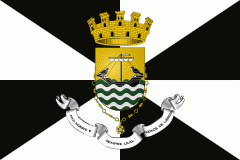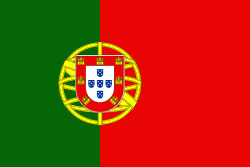Lisbon
 |
 |
Lisbon is recognised as an alpha-level global city because of its importance in finance, commerce, fashion, media, entertainment, arts, international trade, education and tourism. Lisbon is one of two Portuguese cities (alongside Porto) to be recognised as a global city. Lisbon is home to three companies in the Global 2000. It is one of the major economic centres in Europe, with a growing financial sector and one of the largest container ports on Europe's Atlantic coast. Additionally, Humberto Delgado Airport served 31 million passengers in 2019, being the busiest airport in Portugal, the third busiest in the Iberian Peninsula and the 20th busiest in Europe. The motorway network and the high-speed rail system of Alfa Pendular link the main cities of Portugal to Lisbon. The city is the ninth-most-visited city in Southern Europe, after Istanbul, Rome, Barcelona, Milan, Athens, Venice, Madrid and Florence with 3,539,400 tourists in 2018. The Lisbon region has a higher GDP PPP per capita than any other region in Portugal. Its GDP amounts to US$110.3 billion and thus $39,434 per capita. The city occupies the 40th place of highest gross earnings in the world. Most of the headquarters of multinational corporations in Portugal are located in the Lisbon area. It is also the political centre of the country, as its seat of government and residence of the head of state.
Lisbon is one of the oldest cities in the world and the second-oldest European capital city (after Athens), predating other modern European capitals by centuries. Julius Caesar made it a municipium called Felicitas Julia, adding to the name Olissipo. After the fall of the Roman Empire it was ruled by a series of Germanic tribes from the 5th century; later it was captured by the Moors in the 8th century. In 1147 Afonso Henriques conquered the city and since then it has been the political, economic and cultural centre of Portugal.
Lisbon's name may have been derived from Proto-Celtic or Celtic Olisippo, Lissoppo, or a similar name which other visiting peoples like the ancient Phoenicians, Greeks and Romans adapted accordingly, such as the pre-Roman appellation for the Tagus River, Lisso or Lucio. Classical authors writing in Latin and Greek, including Strabo, Solinus, and Martianus Capella, referred to popular legends that the city of Lisbon was founded by the mythical hero Ulysses (Odysseus). Lisbon's name was written Ulyssippo in Latin by the geographer Pomponius Mela, a native of Hispania. It was later referred to as "Olisippo" by Pliny the Elder and by the Greeks as Olissipo (Ὀλισσιπών) or Olissipona (Ὀλισσιπόνα).
Another claim repeated in literature is that the name of Lisbon could be traced back to Phoenician times, referring to a supposed Phoenician term Alis-Ubbo, meaning "safe harbour" or "pleasant haven". Although modern archaeological excavations show a Phoenician presence at this location since 1200BC, this folk etymology "is never attested in ancient classical literature".
Lisbon's name is commonly abbreviated as "LX" or "Lx", originating in an antiquated spelling of Lisbon as ‘‘Lixbõa’’. While the old spelling has since been completely dropped from usage and goes against modern language standards, the abbreviation is still commonly used.
Map - Lisbon
Map
Country - Portugal
 |
 |
| Flag of Portugal | |
One of the oldest countries in Europe, its territory has been continuously settled, invaded and fought over since prehistoric times. The territory was first inhabited by pre-Roman and Celtic peoples who had contact with Phoenicians, ancient Greeks and Carthaginians. It was later ruled by the Romans, followed by the invasions of Germanic peoples and the Islamic invasion by the Moors, whose rule was eventually expelled during the Reconquista. Founded first as a county of the Kingdom of León in 868, gained its independence as the Kingdom of Portugal with the Treaty of Zamora in 1143.
Currency / Language
| ISO | Currency | Symbol | Significant figures |
|---|---|---|---|
| EUR | Euro | € | 2 |
| ISO | Language |
|---|---|
| PT | Portuguese language |

















